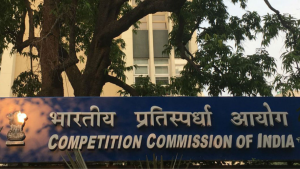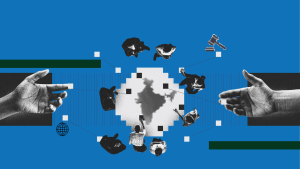

The ‘Loss’ of Justice
People often ask the question ‘Who am I?’ during the course of their lives as a point of reflection, hoping to dig deep and come up with incredible insights. When I dwell upon the same, I find that my professional identity becomes the defining feature of my persona. I have now spent almost 17 years as a practicing lawyer, who functions within the judicial system and who is facing the system. In the legal profession, one gets used to the delay in the system, with judges overworked, under-equipped, courts overburdened or unwilling. When a litigant in India enters the system, one assumes that s/he is under no illusion but one of the first questions that is asked is how long will the case take? This question is put up as part of the formality, as almost everyone who dares to venture knows, the battle is just starting. This battle is not only of preparing for the litigation, but it is also one of dealing with lawyers, judges, court staff amongst others. The others – lesser known and unanticipated – include emotional trauma or the mental and psychological stress and social pressures that one has to endure during the whole process. As lawyers, we often rationalize this as a part of the process and take an intellectual stand but what if the trauma was personal? What if the litigant was a family member? Would reason still trump emotion?
My father is the joint owner of few properties with his brothers, which they had purchased through registered sale deeds. My grandfather (a lawyer) apparently made a Will in respect of these properties (that were not under his name, but were under the name of my father and his brothers) and gave them to one of his other sons (a former high court judge) and his two grandsons (both lawyers), who decided to claim the property by filing a suit in the trial court. Interestingly, the case was first filed in a district where neither of the parties resided and nor was the property located there. The other co-owners of the property (including my father) were not made parties to the suit. This case was decreed in a record period of 9 months without any of the other co-owners being aware of the case. The speed with which the trial court reached this judgment would belie claims of any delay in the judicial system! With speed wrap to the present, two courts have approved of this Will, ignored the sale deeds, and gave the property to one of the co-owners.
In the legal journey, I saw my father change. A man, who loved spending time with friends now avoids their company. Any social engagement is rejected firsthand. My father’s loss has also translated to my mother losing out on experiences she once cherished, such as attending music concerts, plays or going out for meals. Just like the mythological queen Gandhari put on a blindfold to share her husband’s loss, my mother now avoids things as she feels her sense of duty or support by foregoing those experiences. For a man who used to nod off at the slightest opportunity, sleep has become an elusive friend who plays hard to get every day. When sleep does beckon, it is colored with nightmares, which seem so real that he often wakes up screaming or in a cold sweat. The screams are punctuated with strained conversations in the Punjabi dialect but despite being a witness to this dramatic occurrence night after night, my mother still hasn’t been able to fathom the protagonists in his distressing dreams. With the boundaries between the real and dream worlds blurred by the traumatic visions, he gets up at odd hours in the morning, engulfed by waves of anxiety that leave him listless and exhausted for the entire day. The man who longed to play with his grandchildren, is now nervous of venturing out, fearing that he may be met with sudden wave of panic. He keeps thinking about the day the litigation will end and whether he will be able to piece his life back to the way it was. Each day passes with the hope growing dimmer in his eyes.
All this happened despite my father’s successful career, which is seen as the defining feature of the ‘self’. The frustration with the system not only cost him time and money, but it cost him his ‘peace of mind’. Disappointment with the pace and functioning of the judicial system and of justice being denied broke something within him. A person who holds a post graduate engineering degree is not able to understand the system and its results. He is unable to reason with himself – ‘why does he continue to live on rent in a flat while his brother lives in a palatial house? Or why is he not able to enjoy his property?’ His life is now punctuated with many such questions.
There is also a sense of loss. And, this loss is not only his. The losses keep piling up, but he tries to cling to gratitude for the things which still manage to bring a smile. The loss of a person and faith is not his alone but of a family too – loss borne by a wife, who does not enjoy the companionship of her husband in old age. Loss borne by a son and daughter, who no longer can joke or fight with their father. Loss borne by grandchildren, whose grandfather does not want to go to the park or take them to swings or merry go rounds. Those hours playing football, those memories which are lost, for they never happened.
Aristotle once said these immortal words “…law is the reason unaffected by desire…” Since most legal cases are based on vindication of one’s actions, built into which desires, isn’t it time to factor ‘the loss of desire’ in the judicial equation? Why should a litigant who desires justice be forced to lose all other desires?
In the quest for disposal of cases, which merely become numbers at some level, one hope’s that the lady of justice will for just once remove her blindfold and look at effective and timely resolution of cases so that justice can be ‘found’ and lives are not ‘lost’.
The views expressed in this article are solely those of the author’s and they do not represent the views of DAKSH.
Nikhil Majithia
RECENT ARTICLES


Testing the Waters: Pre-Implementation Evaluation of the 2024 CCI Combination Regulations

Not Quite Rocket Science

Administration of justice needs an Aspirational Gatishakti

-
Rule of Law ProjectRule of Law Project
-
Access to Justice SurveyAccess to Justice Survey
-
BlogBlog
-
Contact UsContact Us
-
Statistics and ReportsStatistics and Reports
© 2021 DAKSH India. All rights reserved
Powered by Oy Media Solutions
Designed by GGWP Design